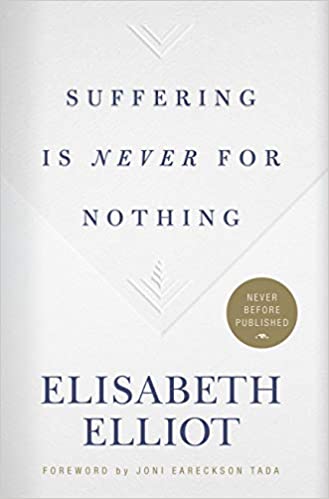Most, if not all Christians are generally loving, kind, and compassionate. But when it comes to showing empathy toward others, many self-acclaimed believers fail. Oftentimes, we fail to comfort other Christians, especially those who are hurting.
Empathy, which is the ability to understand and share the feelings of another, does not come easy for many.
In Job’s experience with his 3 friends, there are several things we should consider when helping the hurting.
Jobs’ Three Friends
All of Job’s three friends were old, older than Job (Job 15:9-10), but we assume that Eliphaz was the oldest. He is named first (Job 2:11) and spoke first. Also, it seemed that God accepted him as the elder member of the trio (Job 42:7).
Eliphaz was associated with Teman, a place known for its wisdom (Jeremiah 49:7). He put great faith in tradition (Job 15:18-19) and the God he worshiped was an inflexible Lawgiver (Job 4:7).
Bildad must have been the second oldest since he is named second and spoke after Eliphaz. In a word, Bildad was a legalist. We can read his life text in Job 8:20. He could quote ancient proverbs and like Eliphaz, he had great respect for tradition.

For some reason, Bildad was certain that Job’s children had died because they also were sinners (Job 8:4). The man seemed to have no feeling for his hurting friend, Job.
Zophar was the youngest of the three and surely the most dogmatic. He spoke like a schoolmaster addressing a group of ignorant freshmen (Job 11:6). The key text to understanding Zophar is Job 20:4-5.
Interestingly enough, Zophar spoke to Job only twice. Either he decided he was unable to answer Job’s arguments, or he felt that trying to help Job was a waste of time.
Helping the Hurting
In our walk with God, there will be times when we will undergo trials and difficulties. As Max Lucado said, “God never said that the journey would be easy, but He did say that the arrival would be worthwhile.”
Today, it’s our friends, neighbors, workmates, etc. who might need our empathy. Tomorrow, it could be us on the receiving end. Thus, when we see others who are hurting, we must always be ready and willing to help them out.
Here are some things we can do to ease their pain and heaviness.
1. Your Presence Means Everything
When Job’s three friends heard of the tragedy he had suffered, they immediately came to comfort and console him (Job 2:11). They wept, tore their robes, and sat down with him on the ground. For seven days and seven nights, no one said a word to Job because his suffering was too great.
The best way to help people who are hurting is just to be with them. You do not have to say a word for your presence is more than enough. Don’t even try to lecture them about God’s purpose and explain why this is happening.
Explanations never heal a broken heart!
2. Listen with Your Heart
At the end of their 7 days of silence, Job’s three friends started to deliver their speeches. And Job later confessed he wished they stayed silent (Job 13:5).
Eliphaz who spoke first did not address the pain in Job’s heart. Instead, he replied to the words from Job’s lips and this was a big mistake (Job 4:1-2). A wise counselor and comforter must listen with the heart and responds to feelings as well as to words.
A broken heart is not healed with logic, but with love. Yes, you must speak the truth but you should do it in love (Ephesians 4:15).

3. Choose Your Words
Instead of encouraging Job, Eliphaz accused him of not practicing what he preached (Job 4:3-6). He went further to tell Job that he must humble himself and confess his sins. According to Eliphaz, Job’s trials are God’s means of disciplining him (Job 5:8-17).
The last thing Job wanted to hear from his friends was accusation and condemnation. What the hurting person needs are assurance, encouragement, and illumination from the Word of God.
Never underestimate the power of words to encourage people in the battles of life. Speaking the right words at the right time, and with the right motive can make a tremendous difference.
Your words can nourish those who are weak and encourage those who are defeated. But your words can also hurt those who are broken and only add to their burdens. So, be careful what you say and how you say it.
4. Never Argue with the Hurting
When comforting the hurting, try as hard as you can to hold back from arguing with them. You will not accomplish anything with countless arguments and discussions.
Eliphaz argued that Job had nothing to fear because God always blesses the righteous and judges the wicked. This is the basic premise of Job’s three friends. Do what is right and life will go well for you; do what is wrong and God will send pain and punishment.
Eliphaz’s argument is, in reality, Satan’s philosophy in different words (Job 1:9. 2:4). In effect, Eliphaz was saying, “Confess your sins and God will restore all that you have lost.”
Most people will agree that ultimately God blesses the righteous and judges the wicked. But this is not what’s in question here. The immediate, not the ultimate judgment, was Job and his friends’ concern.
Had Job’s friends listened to him, accepted his feelings, and not argued with him, they would have helped him greatly. But they chose to be prosecuting attorneys instead of witnesses. In the end, the Lord rebuked them; and they had to ask Job’s forgiveness (Job 42:7-10).
5. Put Yourself in Their Situation
Job responded to his friends and voiced some eloquent observations. These are the things that we ought to keep in mind when spending time with people who are hurting.
a. Job’s friends did not feel the heaviness of his suffering (Job 6:1-3).
Eliphaz, Bildad, and Zophar were not helpful to Job at all because their views were too narrow. It’s no wonder that Job had spoken impetuously. His friends would have done the same if they carried the load he carried.
What did Job do? He appealed to God that He would consider his plight and lighten his suffering before he died.
Without empathy and compassion, we will never know how badly a person is hurting. We cannot truly comfort others without feeling the pain and difficulty that they are going through.
b. Job’s friends did not understand the bitterness of his suffering (Job 6:4-7).
In his response to Eliphaz, Job passionately appealed to his friends that they might have more understanding and sympathy. Yet, his three friends insisted that he must have done something bad.
The feeling of being a target at which God was shooting poisoned arrows made Job’s spirit bitter. God in His army in array, shooting at one weak man; and Job’s friends were adding to the poison.
This is what’s often missing in us – an understanding and sympathetic heart. We are very quick to tell those who are hurting that their suffering is God’s punishment for their sins.
c. Job’s friends did not feel his hopeless situation (Job 6:8-13).
Prolonged and intense suffering can make a person feel powerless to handle life, and this can lead to hopelessness. If you can’t control some of the elements that make up life, how can you plan for the future?
Job exclaimed, “What strength do I have, that I should hope? And what is my end, that I should prolong my life” (Job 6:11)?
Yet, Job never gave up his faith in God and his integrity. Even if God had permitted evil to come into his life, Job did not rebel against God. He did not take matters into his own hands which is what most hopeless people today would resort to.
Thank God for the hope that we have in Christ. It’s because of the finished work of Christ that we can look forward to a promising future.

d. The ministry of Job’s friends was ineffective (Job 6:14-30).
Job’s three friends didn’t show compassion for him or try to meet his needs. They were like a dirty brook in the desert that disappoints thirsty travelers.
Eliphaz, Bildad, and Zophar were Job’s friends as long as he was prosperous. But when trouble came, they turned against him. Physically, the three men were sitting with Job on the ash heap. But emotionally, they were like the priest and Levite passing by “on the other side” (Luke 10:30-37).
Are you always willing to empathize with those in need? Do you effectively support anyone who is in the midst of trial and suffering? How effective are you in the ministry that God entrusted to you?
Conclusion
Job’s friends had not been an encouragement to him. They had taken a superior attitude as judges, assuming that they knew God better than Job did. These three men did not identify with Job in his grief and pain.
Job said, “But you forgers of lies, you are all worthless physicians” (Job 13:4). They smeared the whitewash of their lies (Psalm 119:69) over the discussion. This was to avoid dealing with difficult problems while maintaining their traditional ideas. They stayed on the surface of things and never went deep into God’s truth or Job’s feelings.
Counseling that stays on the surface accomplishes very little. If we are going to help people, we must go much deeper. But this demands love, courage, patience, and compassion.
To show empathy towards others, we need much more than platitudes (Job 13:12). We need the wisdom to know how to apply the truth to the needs of hurting people.
Are you up to the challenge and be an empathizer?
Disclaimer: As an Amazon Associate, I may earn a commission when you use any links on this page to make a purchase, but at no additional cost to you.
Recommended Resource:
Suffering Is Never for Nothing by Elisabeth Elliot
 Hard times come for all in life, with no real explanation. When we walk through suffering, it has the potential to devastate and destroy, or to be the gateway to gratitude and joy.
Hard times come for all in life, with no real explanation. When we walk through suffering, it has the potential to devastate and destroy, or to be the gateway to gratitude and joy.
Elisabeth Elliot was no stranger to suffering. Her first husband, Jim, was murdered by the Waoroni people in Ecuador moments after he arrived in hopes of sharing the gospel. Her second husband was lost to cancer.
Yet, it was in her deepest suffering that she learned the deepest lessons about God.
Why doesn’t God do something about suffering? He has, He did, He is, and He will.
Suffering and love are inexplicably linked, as God’s love for His people is evidenced in His sending Jesus to carry our sins, griefs, and sufferings on the cross, sacrificially taking what was not His on Himself so that we would not be required to carry it. He has walked the ultimate path of suffering, and He has won the victory on our behalf.
This truth led Elisabeth to say, “Whatever is in the cup that God is offering to me, whether it be pain and sorrow and suffering and grief along with the many more joys, I’m willing to take it because I trust Him.”
Because suffering is never for nothing.

